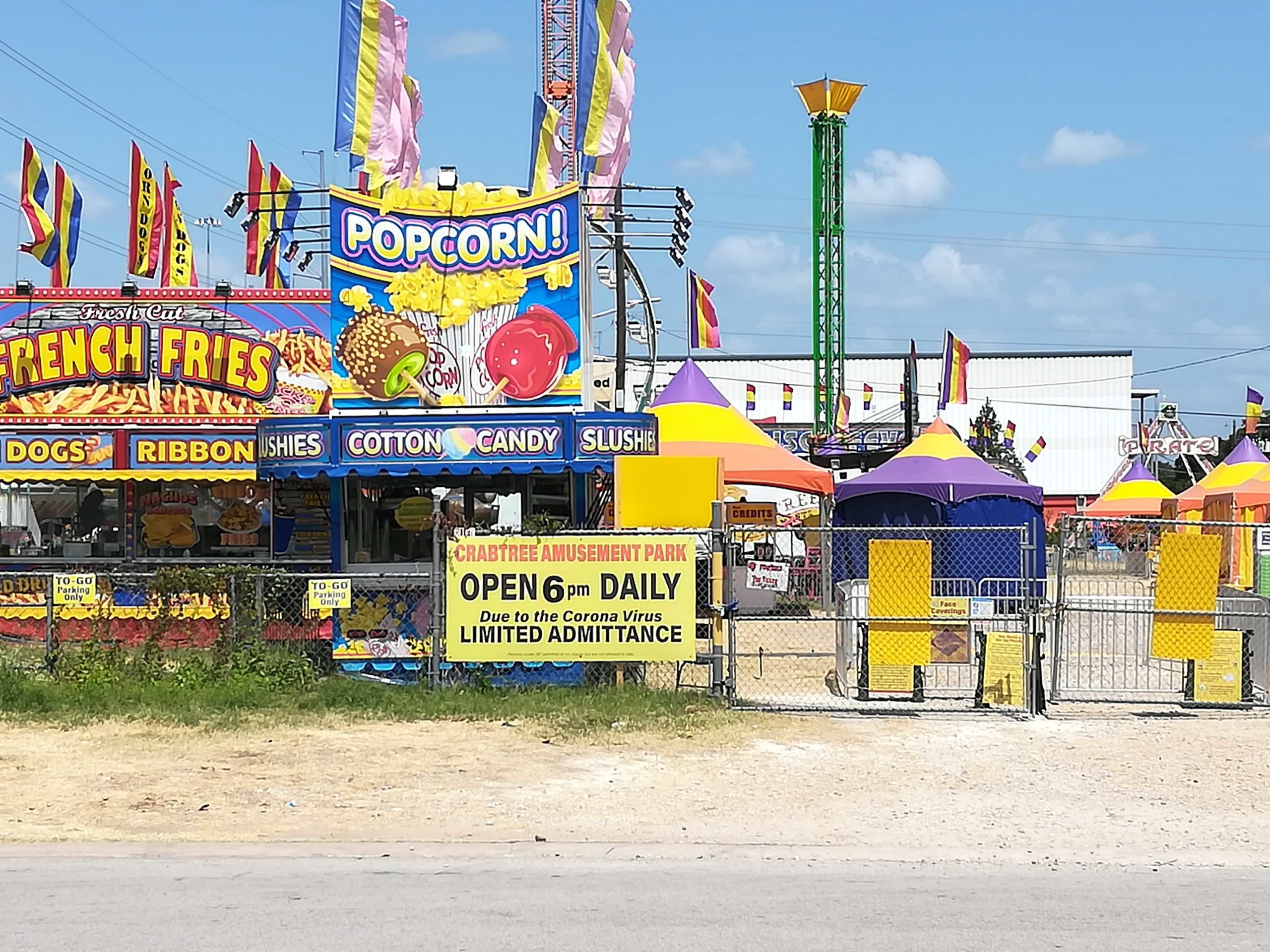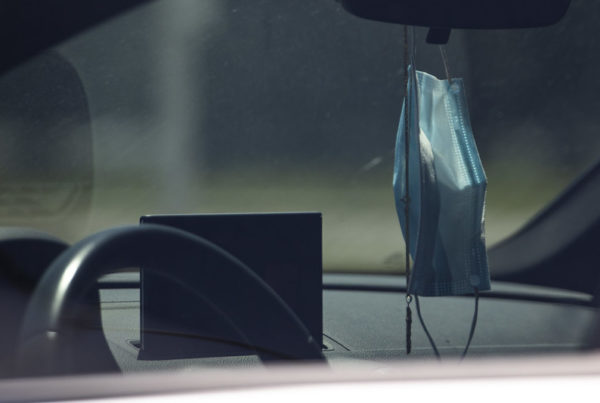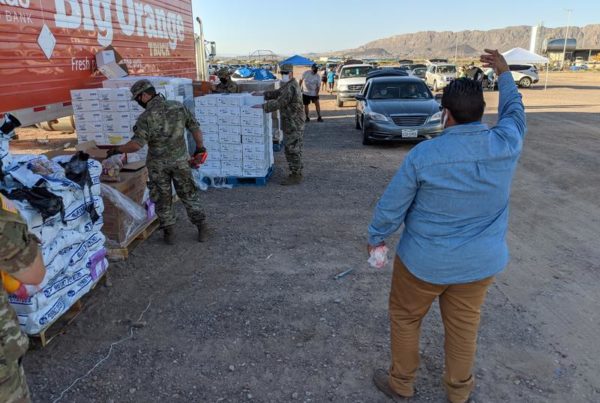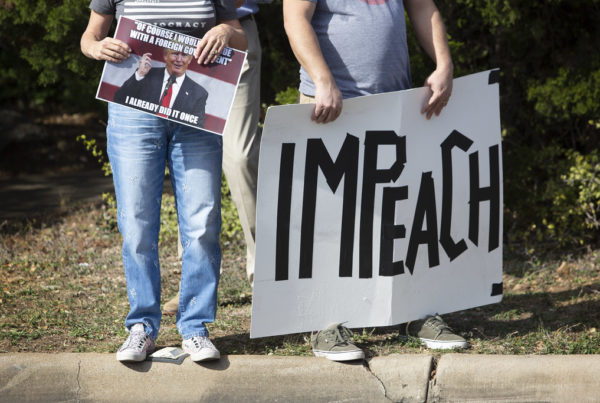Earlier this month the State Fair of Texas made headlines by cancelling this fall’s fair due to COVID-19. It’s big news, to be sure – over 2.5 million people went to the fair last year, and its cancellation is a blow to vendors and employees. But it’s just the latest letdown for an industry that’s been hit hard by the coronavirus.
According to Courtney Barnwell, you can have two kinds of days when you work at a carnival: long, or super long.
“There’s no in between, you know? It’s just long or super long,” Barnwell said.
She would know. Barnwell and her husband Chris technically live in Spring, just outside Houston. But they spend most of their time on the road, working for traveling carnivals. Her main job is selling tickets, which means spending hours in a cramped metal-and-plexiglass booth.
“It could [be] 105 degrees outside with that sun beating on that plexiglass window, right in your eyeball, and you just keep smiling, keep smiling. Sometimes you have to chant it to yourself – just keep smiling,” she said.
Still, Barnwell would love nothing more right now than a long day in a hot booth. But since the coronavirus pandemic began, that hasn’t been an option.
Carnivals are among the many industries that have been turned completely upside down by the coronavirus. Fairs and festivals where traveling carnivals have been a part of for years – from the State Fair of Texas to the Wharton County Youth Fair – have been cancelled.
“We see all of our little fairs that we might have been going to just slowly going ‘nope, nope, nope,’ cancelling, cancelling, cancelling. I’m looking at my computer every day and it’s like, another one cancelled,” Barnwell said.
As a result, many carnival workers and owners find themselves out of work in an industry that’s usually steady. Barnwell counts herself as lucky – even though she’s not working, she was approved for unemployment benefits, and she and her husband own the RV they live in. Others are going through a tougher time.
“I’ve never heard of a carnival employee being unemployed. It was unheard of. I’ve said that for years, and everyone else has said the same thing – you can never be unemployed in the carnival business,” said Rickey Moore, the owner of Moore’s Greater Shows. “Well, we thought we were right but we were wrong, because as of March 8, 2020, I have been unemployed.”
Moore’s carnival has been in his family since 1926. At the beginning of March, his carnival had just finished at the Live Oak County Fair in South Texas, and was heading to its next gig – the Ingleside Round Up Days, near Corpus Christi.
“And as we moved over there and got the last truck there, five minutes later they said the event’s been cancelled due to the coronavirus,” he said.
So Moore packed up all the rides and games, dismissed his workers, and went back home. Since then, his carnival’s been sitting on the six acres he owns in Lyford, just north of Harlingen.
“It’s very sad to look in your yard, and you see your whole livelihood in your backyard, just sitting there,” he said.
Moore is from Texas, but usually this time of year he’s putting on a show in Kansas or Nebraska. But with so much uncertainty on where and when carnivals can operate – not to mention customers’ lack of disposable income – it’s usually not worth it for people like Moore to hit the road.
That doesn’t mean some carnivals aren’t trying though. John Hanschen is from Austin, and owns the Mighty Thomas Carnival. When we spoke, he was in Bismarck, North Dakota, setting up for a carnival with 55 employees.
“We actually have more labor than we need right now,” Hanschen said. “We’re struggling to keep earning enough funds to pay them, but they’re good people.”
The carnival usually works about 50 events a year – following Interstate 35 from Laredo up to Duluth, Minnesota. But this year, Hanschen has only worked five events.
The fairs on his schedule will be smaller than normal to accommodate social distancing. All the employees will wear masks. Customers will have their temperature taken before being admitted to the carnival. Rides and games will be sanitized in between each use. He left behind some attractions that couldn’t be made safe, like the house of mirrors.
“Where you walk through, and it could be a mirror or it could be an opening. You put your hands out in front of you, make this left turn or this right turn, and eventually you get through the maze. Just couldn’t imagine how to keep it clean,” Hanschen said.
He’s not sure he’ll make enough to cover his expenses, or what the future holds for his business.
“It’s really unknown what’s going to happen after this year. And it’s really unknown what’s going to happen next week, as far as that goes. Because we could be closed up at any time,” Hanschen said.
Staying home would have been easier, he said. But for fairs that do plan to go on, for families who still want to ride the rides, for employees who need the work, Hanschen feels like he’s got to try to put on a show.















